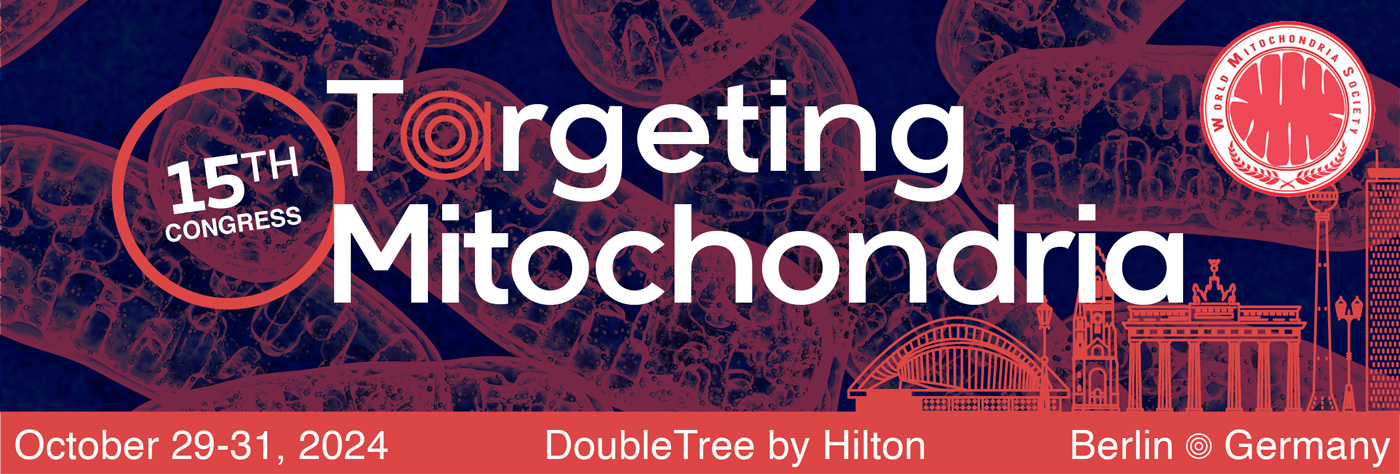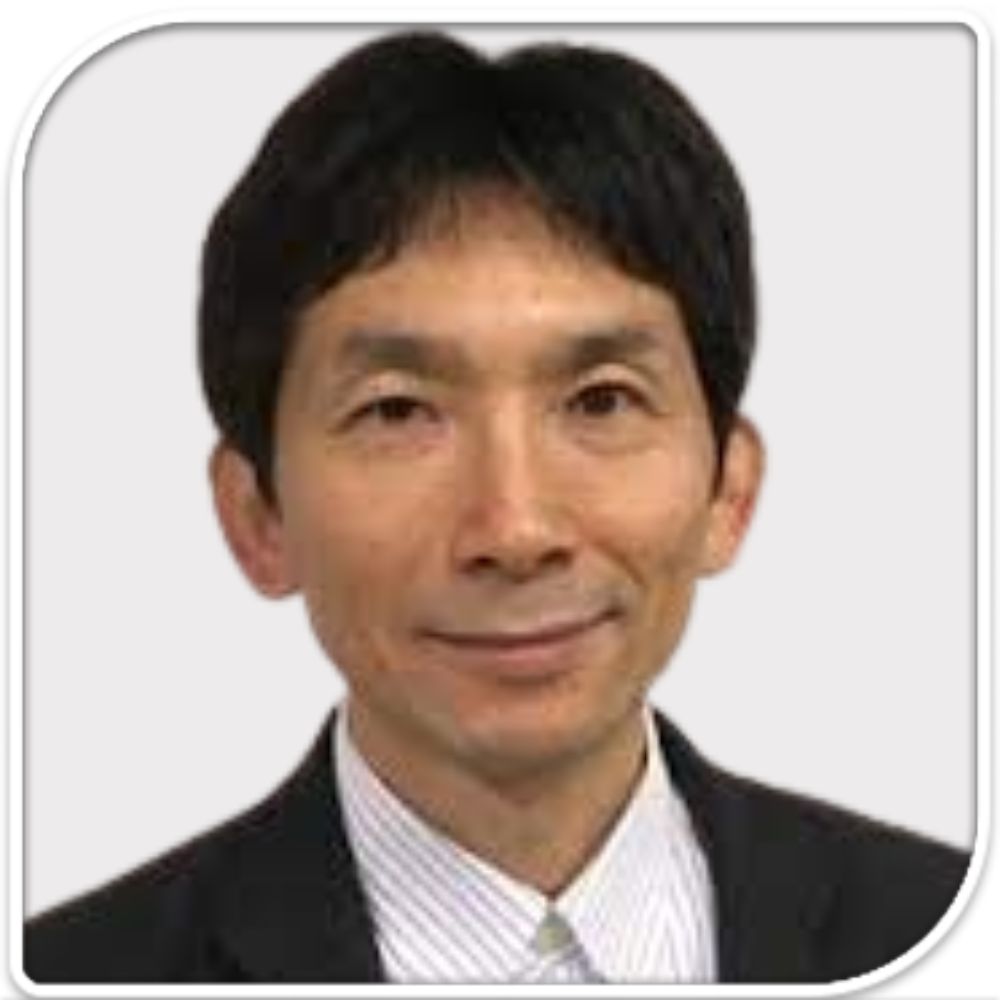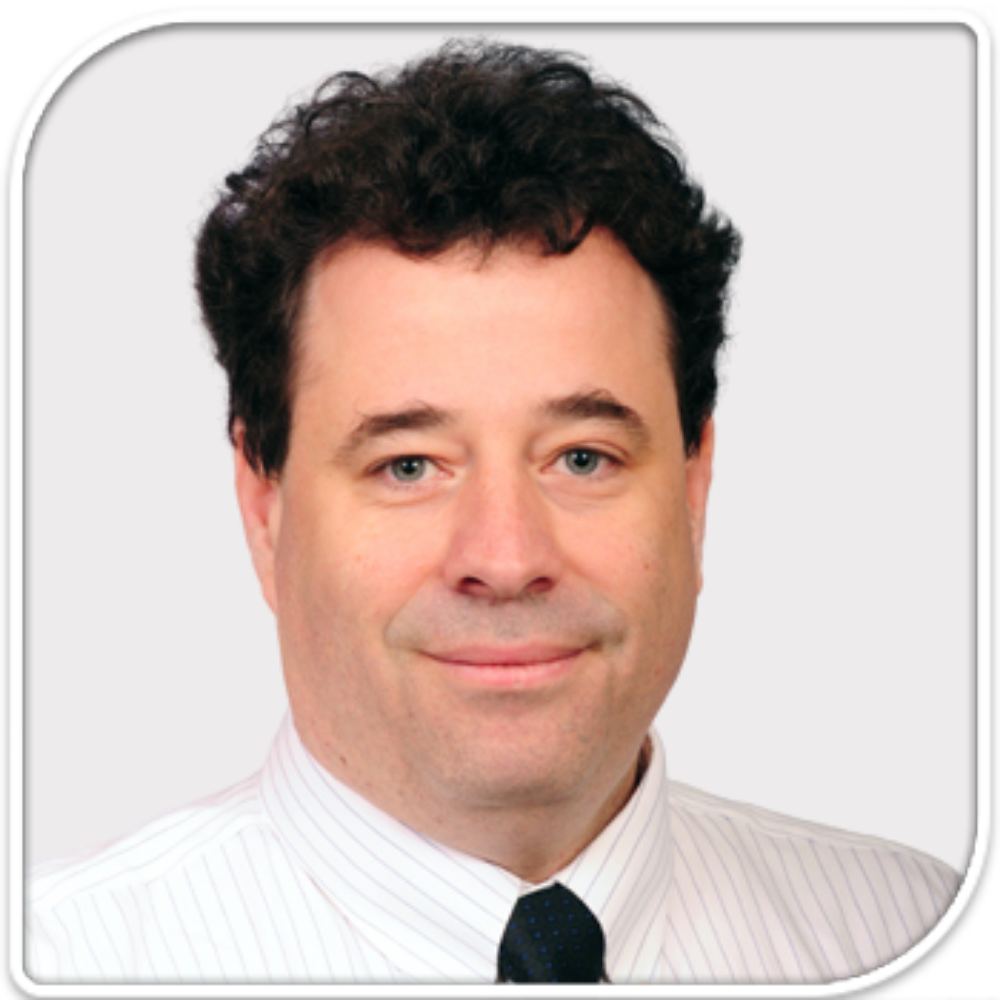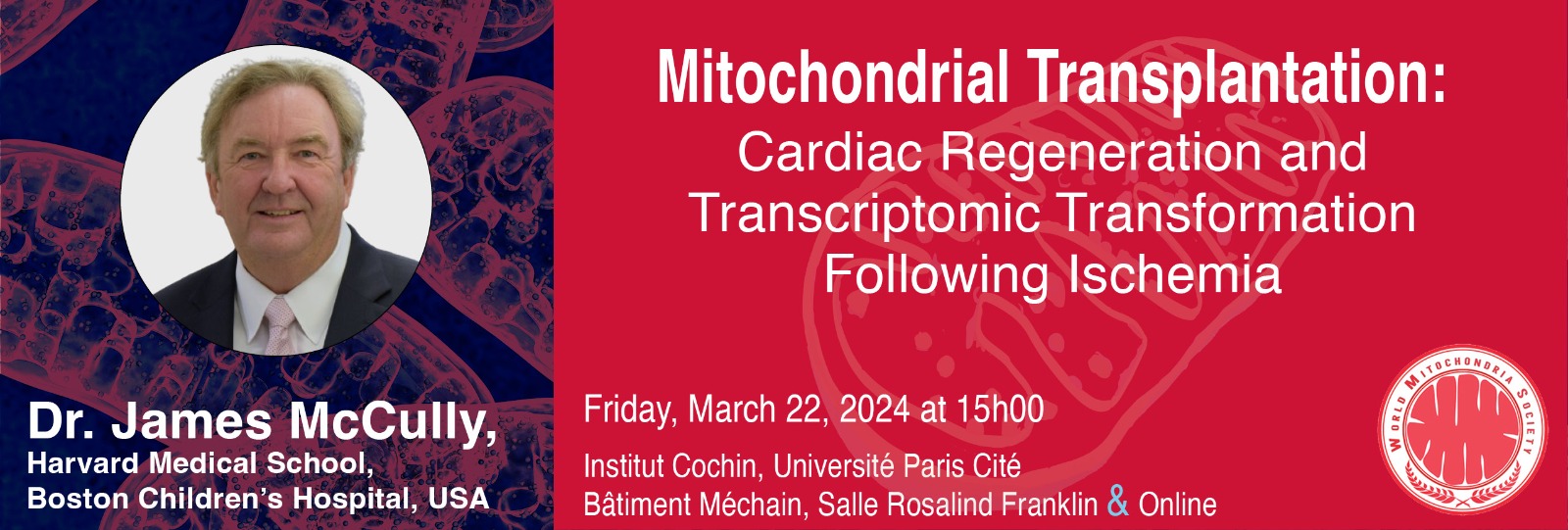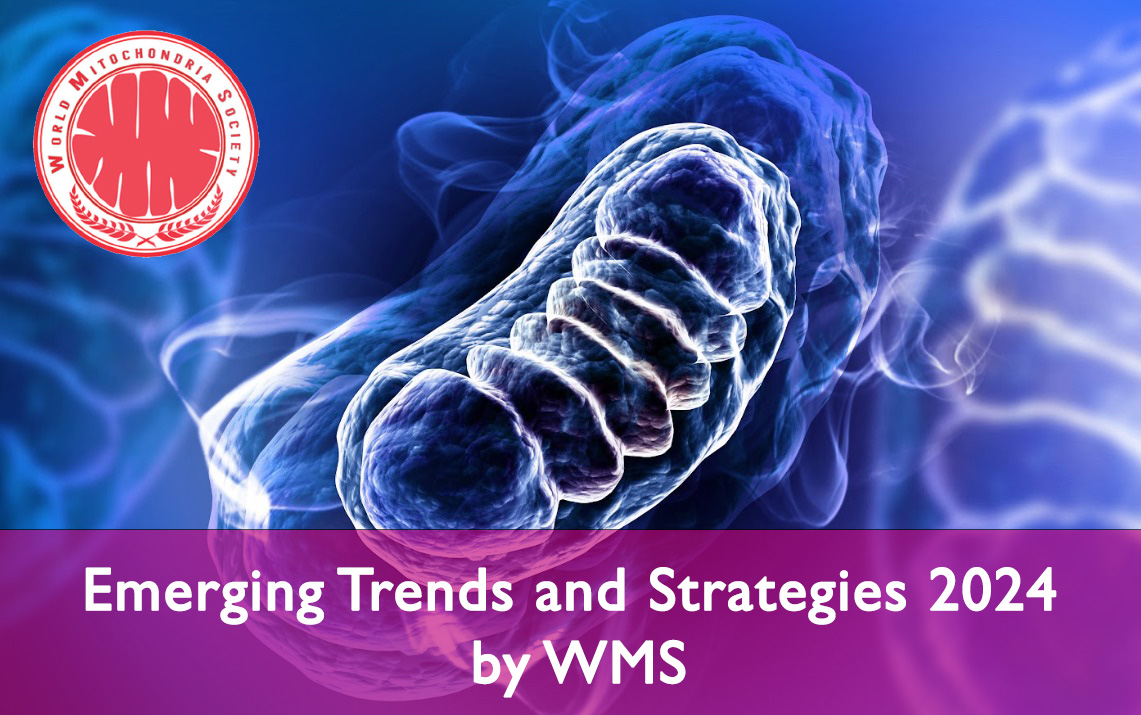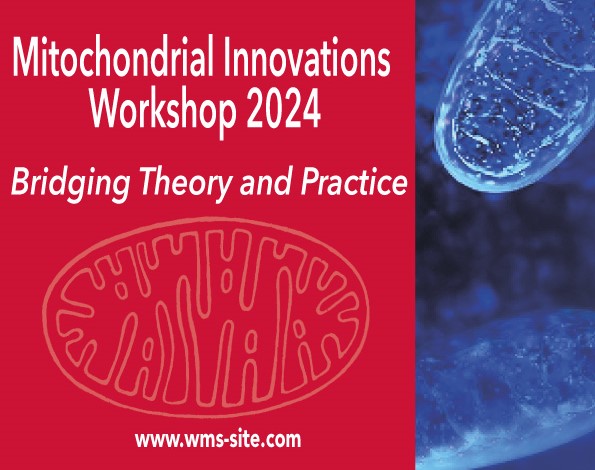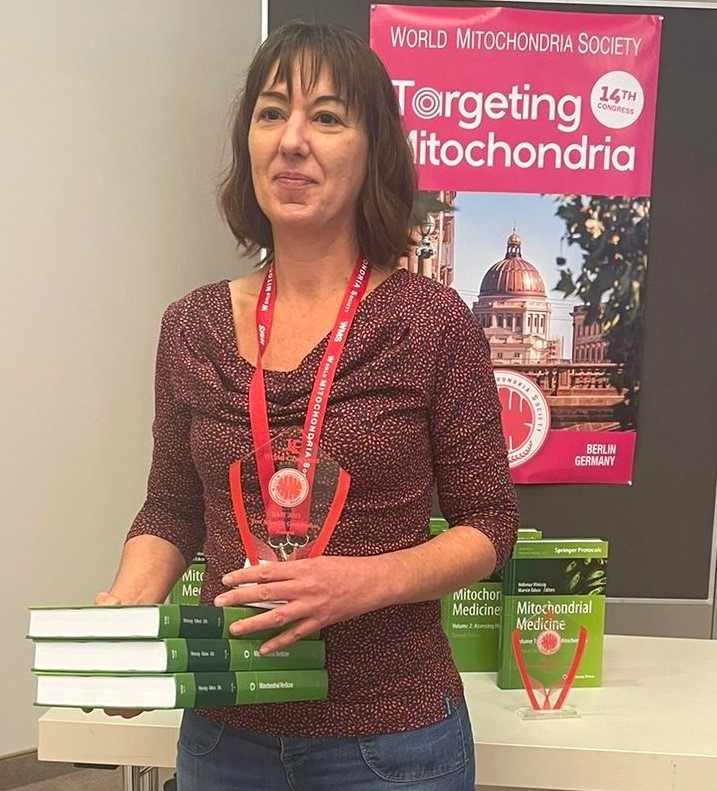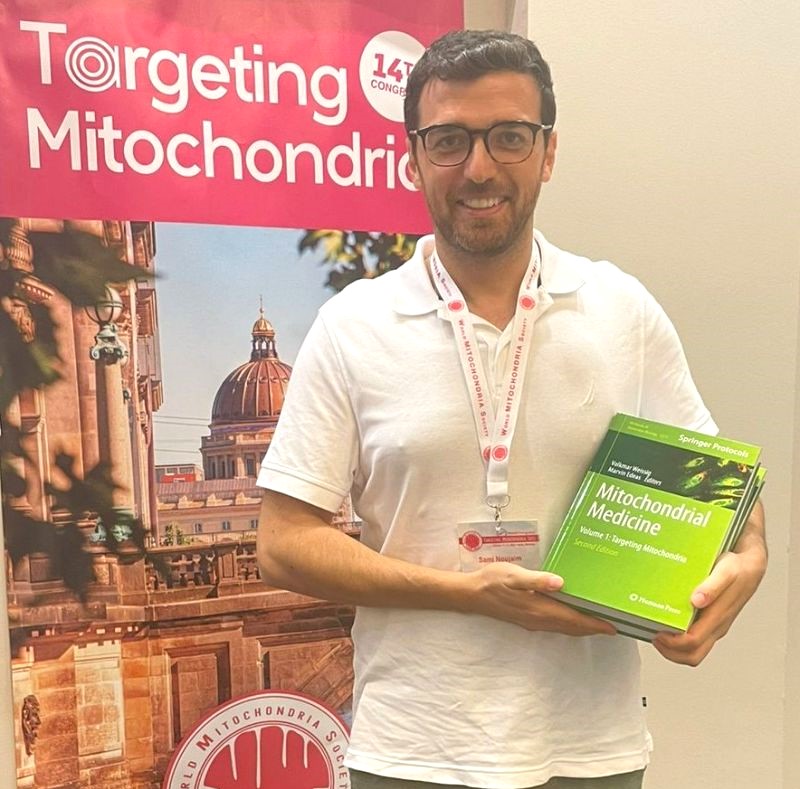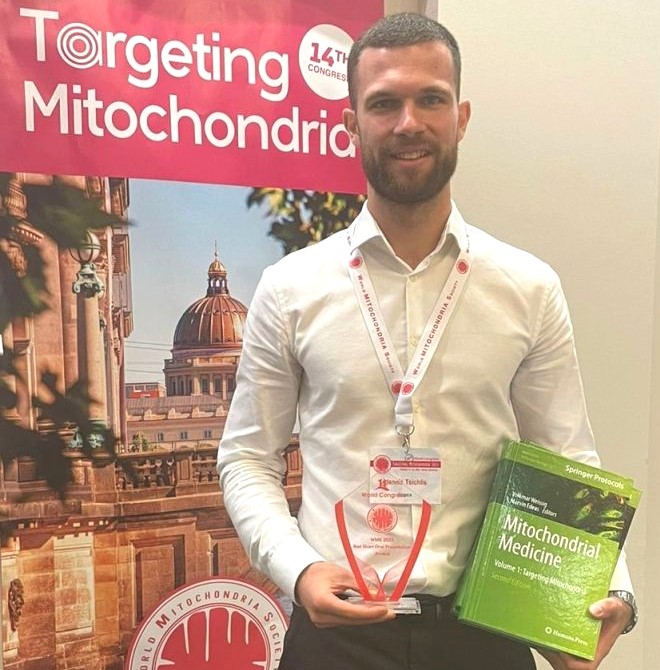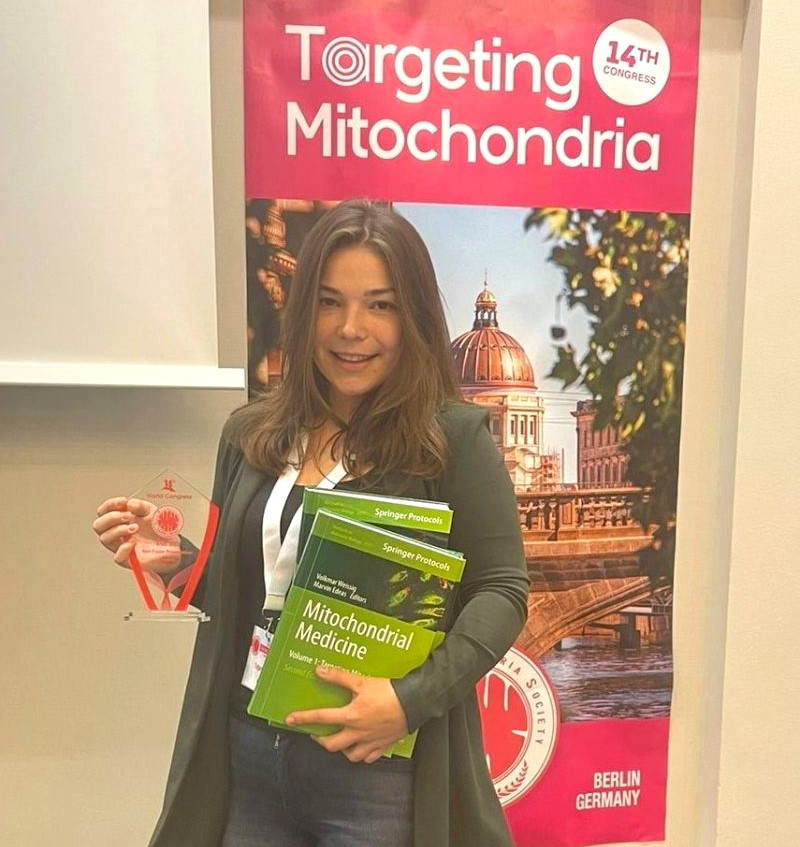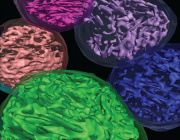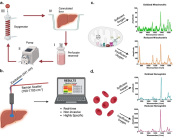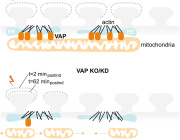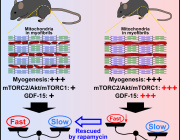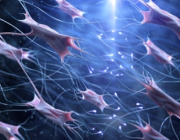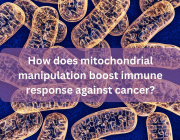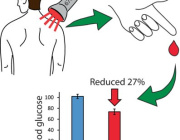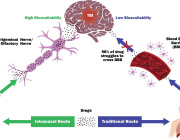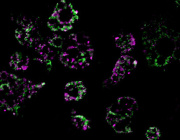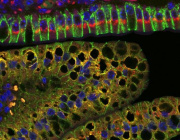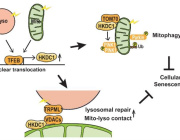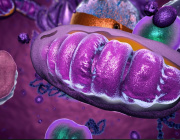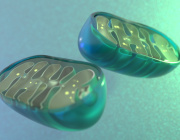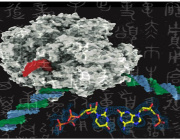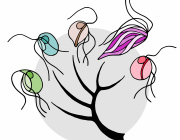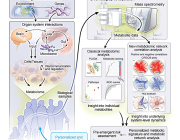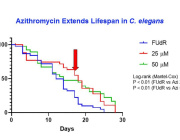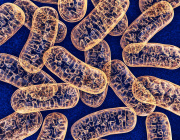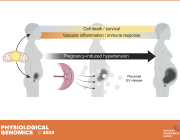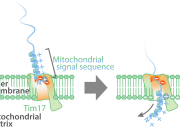World Mitochondria Society Task Force: Call For Strategic Projects
We have the pleasure to announce the formation of the WMS Task Force, a groundbreaking initiative committed to driving innovation and reshaping the landscape of mitochondria research in health and diseases.
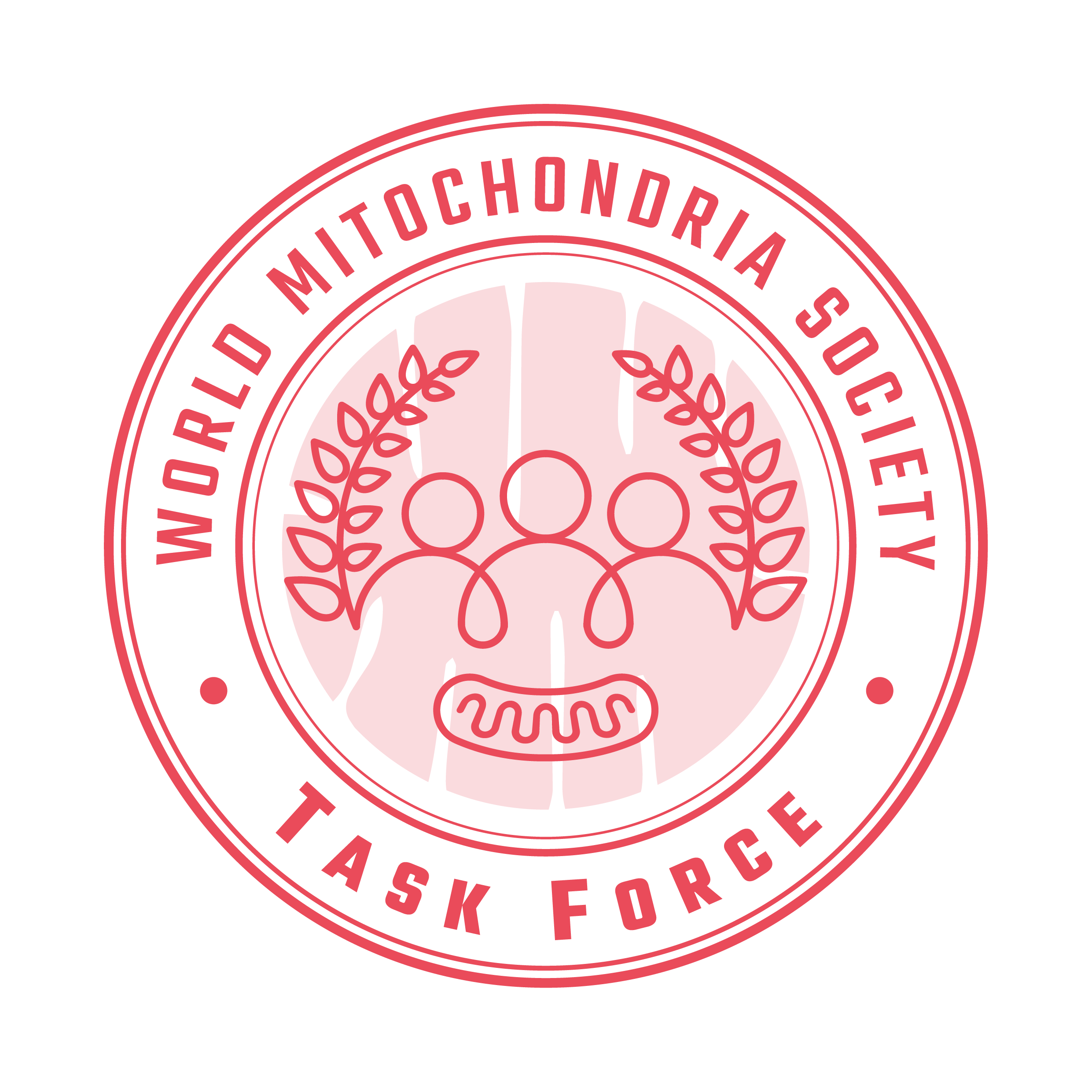
The Aim of WMS Task Force
Through the establishment of a cooperative environment, this Task Force aims to address the challenges that impede the understanding, prevention and treatment of diseases related to mitochondria. It is a platform where knowledge and expertise are freely shared, fostering an atmosphere conducive to significant advancements in mitochondria research in health & diseases.
Our vision of establishing a Task Force that brings together multidisciplinary experts, which is crucial for pushing the boundaries of mitochondrial research and innovation. By fostering a collaborative environment, we can collectively address challenges, share knowledge and expertise, and drive advancements in the understanding of mitochondria research and related diseases.
WMS Task Force Projects
The WMS Task Force is launching 2 projects for the improvement of mitochondrial research and applications:
1- Mitochondrial Transfer & Tunneling Nanotubes (TNTs). Read more.
2- Mitochondrial Oscillation and Resonance: Impact on ATP Production and Distribution in Health and Diseases. Read more.
The Funding
In terms of funding, the WMS Task Force is prepared to submit the selected projects to both public and private institutions. The objective is to secure the necessary resources to fuel these projects, and ensure the sustainability and longevity of the task force.
The collected funding will be distributed to all teams invovled in the Task Force.
How to Join the Task Force & Structure your Project Proposal?
To contribute to one of these 2 pioneering projects, the WMS requests interested researchers and teams to submit a proposal detailing the following aspects:
· Project Overview:
Please provide a concise description of your current research or project. Include key goals, methodologies used, and any preliminary results or findings that could highlight the relevance and potential impact of your work.
· Alignment with Task Force Goals:
Articulate how your work contributes to the broader objectives of the task force. This could be in terms of techniques being developed, the specific aspects of mitochondrial transfer your project focuses on, or the potential applications of your research.
· Challenges and Solutions:
Identify any potential hurdles or obstacles you anticipate in the course of your research. This could be technical issues, logistical constraints, or theoretical problems. Additionally, provide an outline of how you propose to tackle these challenges. This shows proactive problem-solving and can help us better understand the feasibility of your project.
· Team Profile:
Furnish an overview of your team and its expertise. Highlight the skills, qualifications, and experiences of your team members that make them well-equipped to carry out the proposed project. Include any past achievements or relevant projects that demonstrate your team’s capacity to successfully execute the research.
How to Submit?
Please submit your projects and details above to:
· Prof. Volkmar Weissig, President of the WMS
· Prof. Marvin Edeas, Chairman of the Scientific Committee
- At the following email address: mitochondria(at)wms-site.com.
- Deadline for the submission: March 12, 2024.
Applications will be reviewed by the Task Force Selection Committee, and successful applicants will be contacted to proceed to the next stage of the process. Please note that acceptance into the task force is competitive, and only a select number of applicants will be chosen to join.
We look forward to your valuable input and collaboration in this groundbreaking endeavor.
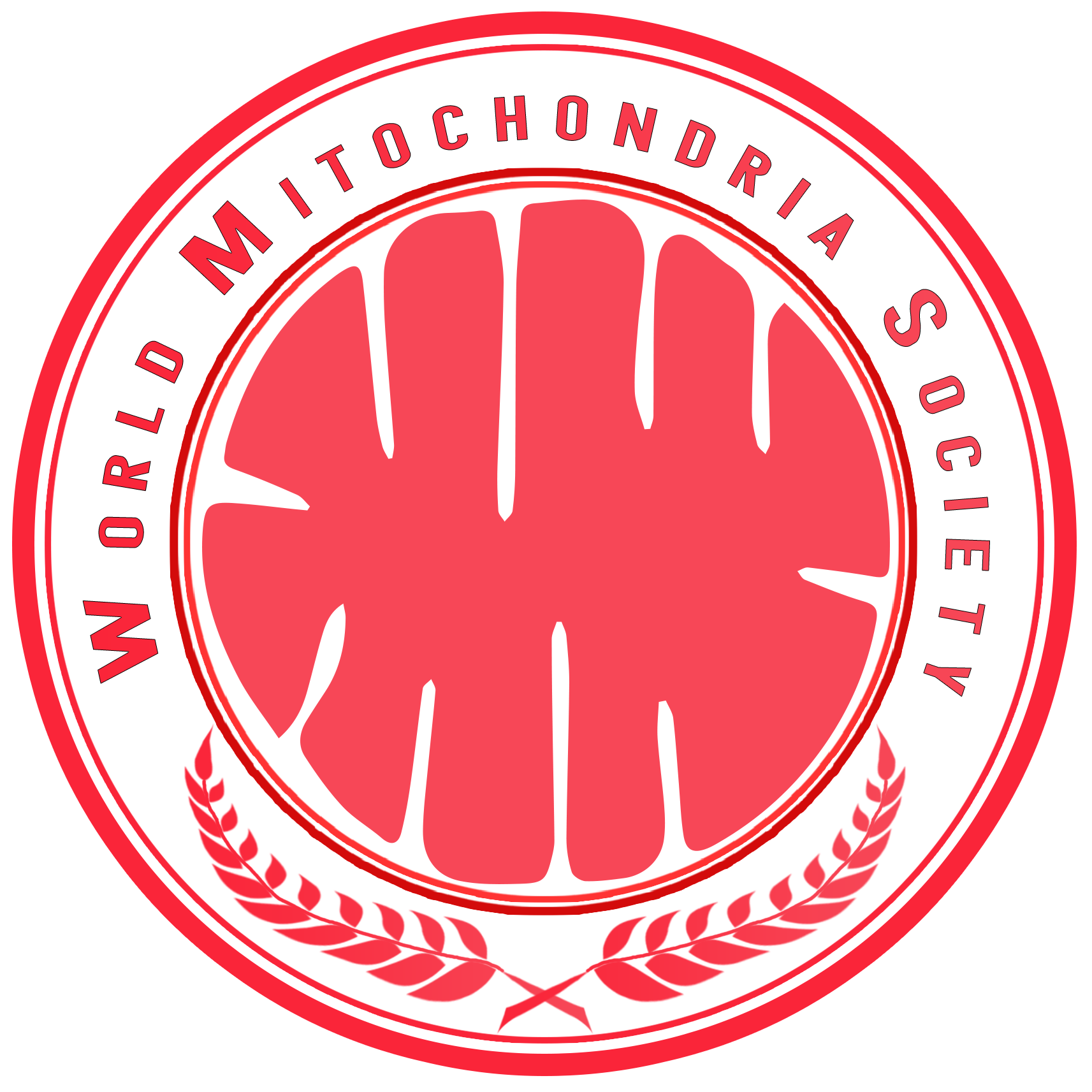 World Mitochondria Society
World Mitochondria Society
Targeting Mitochondria Congress
The Power of Epigenetics: The Patterns of mitoDNA Methylation Transmitted Across Generation
 Dr. Marc-André Sirard, Director of the Center for Research in Reproduction, Development and Intergenerational Health at Université Laval, Canada , will share his latest findings via a major talk at Targeting Mitochondria 2023.
Dr. Marc-André Sirard, Director of the Center for Research in Reproduction, Development and Intergenerational Health at Université Laval, Canada , will share his latest findings via a major talk at Targeting Mitochondria 2023.
Mitochondria are only inherited through the oocyte and the metabolic environment is also transmitted through epigenetic mechanism in mammals.
Dr. Sirard and his team have evidence that DNA methylation in the mitochondrial and genomic DNA might play a role in the programming of gene expression in the next generation. Genomic studies indicate a gene regulation impact of the mitochondrial genome associated methylation levels using the bovine oocyte-embryo model.
Dr. Sirard's talk will be titled "The Power of Epigenetics: The Patterns of mitoDNA Methylation Transmitted Across Generation".
You can learn more about this topic and benefit from the experience of Dr. Sirard by joining Targeting Mitochondria 2023.
Targeting Mitochondria 2023 Congress
October 11-13, 2023 - Berlin, Germany
Targeting MCJ/DnaJC15 to modulate mitochondrial respiration in disease
 Dr. Mercedes Rincon, University of Colorado Anschutz School of Medicine, USA will join the Targeting Mitochondria 2023 Congress and give a presentation entitled "Targeting MCJ/DnaJC15 to modulate mitochondrial respiration in disease".
Dr. Mercedes Rincon, University of Colorado Anschutz School of Medicine, USA will join the Targeting Mitochondria 2023 Congress and give a presentation entitled "Targeting MCJ/DnaJC15 to modulate mitochondrial respiration in disease".
Dr. Rincon and her team have identified MCJ (also called DnaJC15) as a novel negative regulator of mitochondrial metabolism. MCJ associates with Complex I of the ETC, and acts as a negative regulator of Complex I and mitochondrial respiration. MCJ deficiency results in increased mitochondrial respiration, but it has no effect on glycolysis and does not increase the production of reactive oxygen species (ROS).
Dr. Rincon will present their studies showing that MCJ is emerging as a target for non-alcoholic fatty liver disease (NAFLD), and how silencing of MCJ in hepatocytes can be a safe therapeutic strategy for treatment of this and other mitochondria-mediated liver diseases. She will also describe how loss of MCJ in cancer cells leads to chemotherapy resistance due to increased mitochondrial respiration and how MCJ mimetics can overcome chemoresistance.
Join Targeting Mitochondria 2023 to learn more about Dr. Rincon's exciting talk. You can submit a related abstract here.
Targeting Mitochondria 2023 Congress
October 11-13, 2023 - Berlin, Germany
Repairing Marginal Kidneys With Mitochondrial Transplantation: A New Powerful Tissue Engineering Tool That Will Change the Transplant Landscape
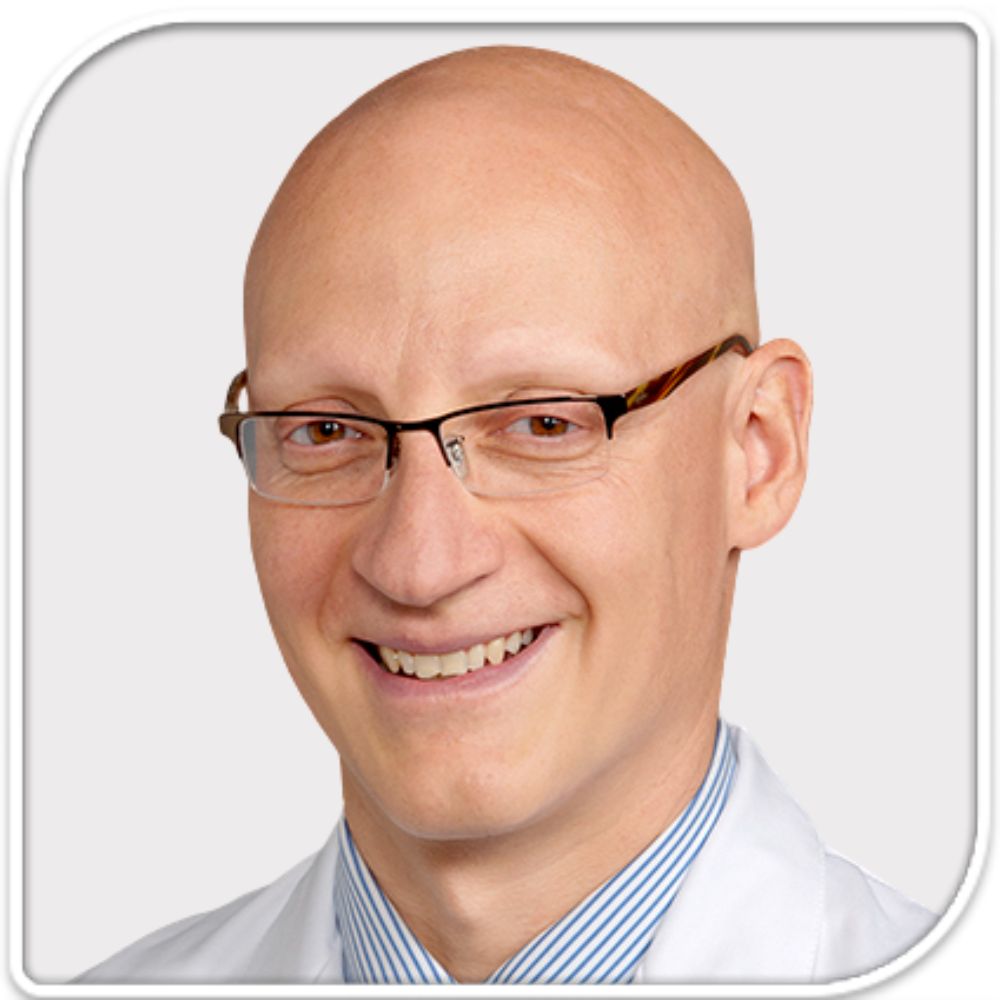 Dr. Giuseppe Orlando, Wake Forest University, USA, will join the Targeting Mitochondria 2023 Congress and give a presentation entitled "Repairing Marginal Kidneys With Mitochondrial Transplantation: A New Powerful Tissue Engineering Tool That Will Change the Transplant Landscape".
Dr. Giuseppe Orlando, Wake Forest University, USA, will join the Targeting Mitochondria 2023 Congress and give a presentation entitled "Repairing Marginal Kidneys With Mitochondrial Transplantation: A New Powerful Tissue Engineering Tool That Will Change the Transplant Landscape".
The lecture will illustrate the state of the art of kidney transplantation and the role that mitochondrial transplantation will have in increasing the donor pool.
It is predicted that mitochondrial medicine will dramatically increase the number of transplantable organs by offering a valuable technology that will enable transplantation to repair marginal allografts. The organ preservation and repair platform should therefore be seen by the mitochondrial society as a formidable platform offered by transplant medicine for the application of mitochondria-based technologies
Join Targeting Mitochondria 2023 to learn more about Dr. Orlando's exciting talk. Read more about Dr. Orlando's latest promising findings.
Targeting Mitochondria 2023 Congress
October 11-13, 2023 - Berlin, Germany
Mitochondria Organelle Transplantation for Neurological Diseases & Aging
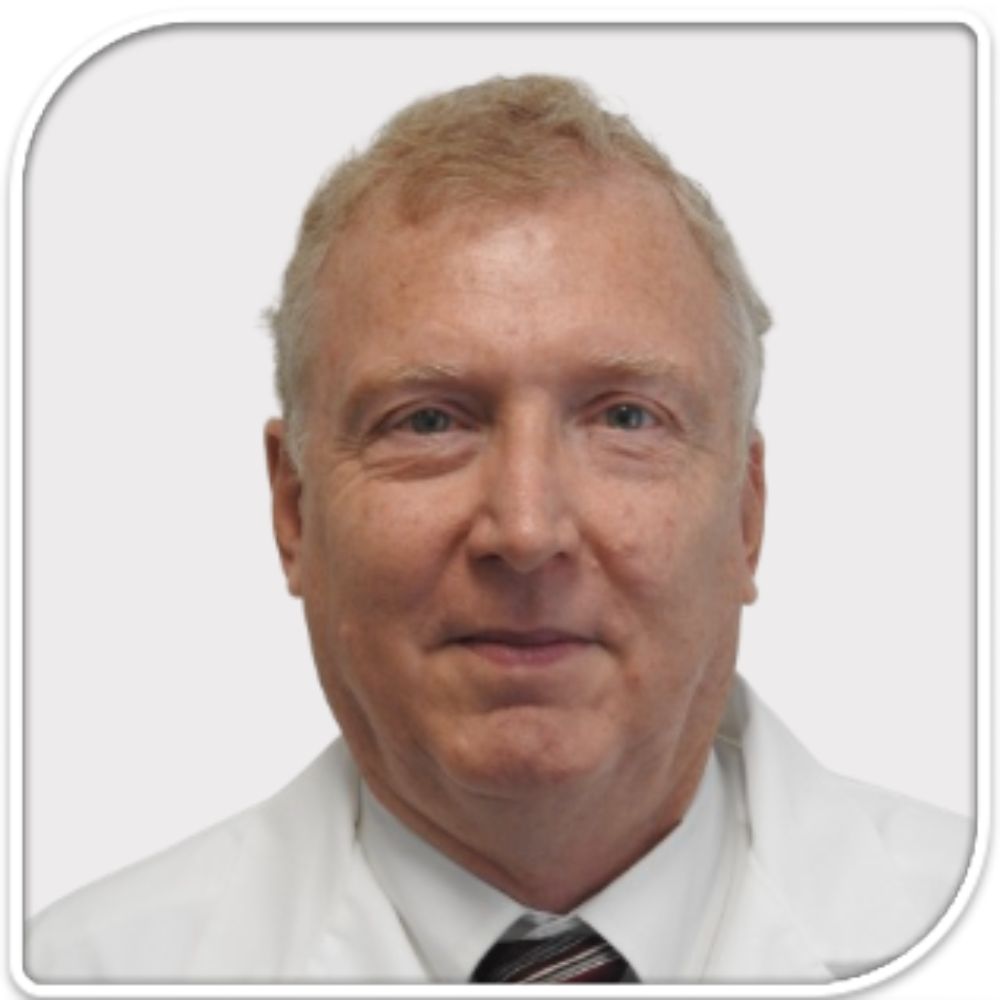 Dr. Mark S. Kindy from the University of South Florida, USA, will join the Targeting Mitochondria 2023 Congress and give a presentation entitled "Mitochondria Organelle Transplantation for Neurological Diseases and Aging".
Dr. Mark S. Kindy from the University of South Florida, USA, will join the Targeting Mitochondria 2023 Congress and give a presentation entitled "Mitochondria Organelle Transplantation for Neurological Diseases and Aging".
Join Targeting Mitochondria 2023 to learn more about Dr. Kindy's exciting talk.
Targeting Mitochondria 2023 Congress
October 11-13, 2023 - Berlin, Germany
What spaceflight and bed rest have in common: A proteomic point of view
 Dr. Marta Murgia from the University of Padova, Italy will join the Targeting Mitochondria 2023 Congress and give a presentation entitled "What spaceflight and bed rest have in common: A proteomic point of view".
Dr. Marta Murgia from the University of Padova, Italy will join the Targeting Mitochondria 2023 Congress and give a presentation entitled "What spaceflight and bed rest have in common: A proteomic point of view".
In the absence of mechanical loading, skeletal muscle undergoes atrophy with loss of strength and detrimental metabolic effects. Dr. Murgia and her team used highly sensitive mass spectrometry (MS)-based proteomics to detail single fiber type-specific molecular remodeling caused by muscle unloading, using bed rest as a model.
In parallel, they measured the muscle proteome of two astronauts, from biopsies taken before and after a six months mission on the International Space Station (ISS). In their muscle lysates, they measured a sharp decrease in the expression of the whole mitochondrial proteome.
Dr. Murgia's talk will give an overview of the main proteomic changes that we measured in these two different models of muscle unloading and disuse. She will highlight striking similarities as well as profound differences. She will discuss the protective role of exercise on skeletal muscle mass in space, with a focus on the mitochondrial proteome.
Join Targeting Mitochondria 2023 to learn more about Dr. Murgia's exciting talk. You can submit a related abstract here.
Targeting Mitochondria 2023 Congress
October 11-13, 2023 - Berlin, Germany
Advances in the Development of Mitochondria-Targeted Pharmaceuticals
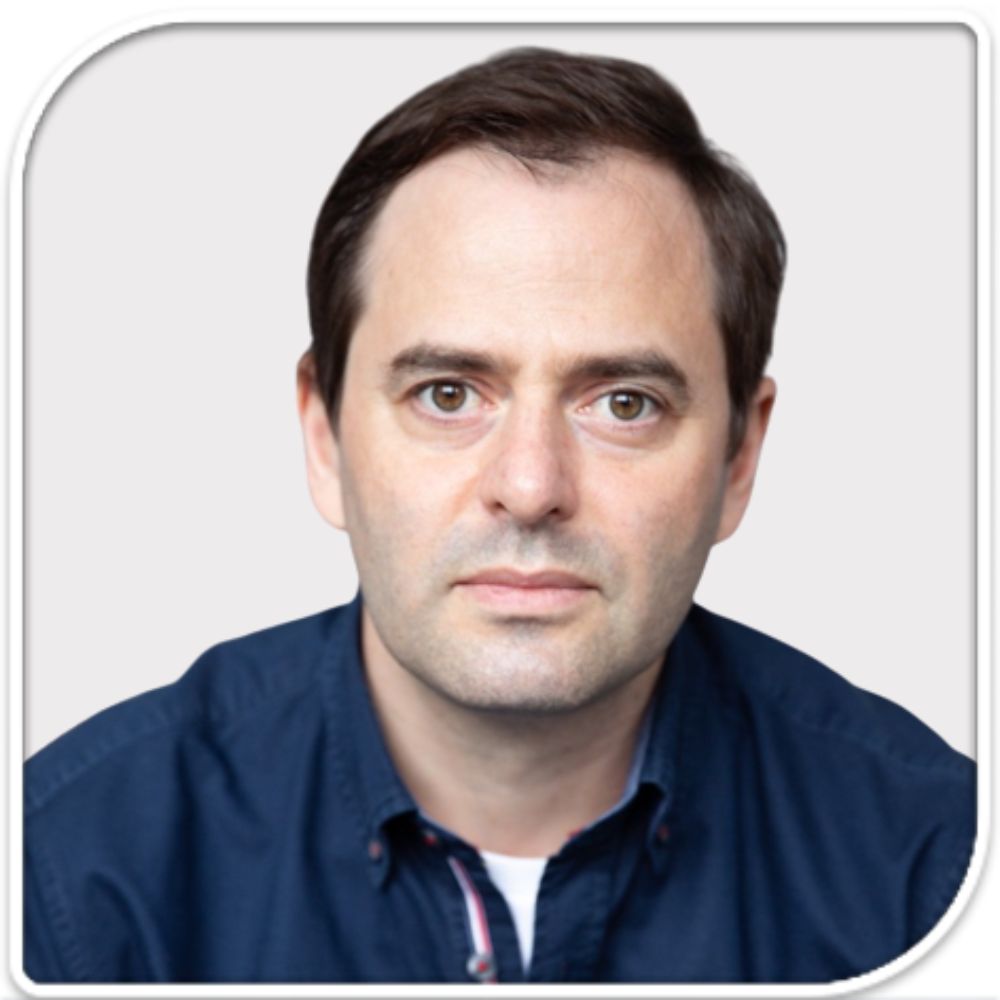 Dr. Maxim Skulachev, CSO at Mitotech (Israel) , who manages Mitotech's core scientific research, will share the latest advances in developing mitochondria targeting drugs during Targeting Mitochondria 2023 this October.
Dr. Maxim Skulachev, CSO at Mitotech (Israel) , who manages Mitotech's core scientific research, will share the latest advances in developing mitochondria targeting drugs during Targeting Mitochondria 2023 this October.
In the last 15 years of his life and scientific career, Vladimir Skulachev dedicated himself to his project on practical application of penetrating ions. This ambitious endeavor focuses on developing new pharmaceuticals based on mitochondria-targeted antioxidants of the SkQ class.
Mitotech's leading compound, SkQ1, is currently undergoing extensive development for different indications and in various pharmaceutical forms, including eye drop formulations (which have reached the third stage of clinical trials in the US), as well as oral and injectable "systemic" formulations.
In this presentation, Dr. Skulachev would like to share their recent findings from preclinical studies they completed using the latter formulations, Mitotech team successfully harnessed both the antioxidant and mild uncoupling properties of SkQ1 molecule.
Dr. Skulachev's short talk will be titled: "Advances in the Development of Mitochondria-Targeted Pharmaceuticals".
Read more about Professor Vladimir Skulachev's impact.
Targeting Mitochondria 2023 Congress
October 11-13, 2023 - Berlin, Germany
Vladimir Skulachev's Strategic Impact on Mitochondrial Medicine: A Tribute to his Vision, Discoveries, and Legacy
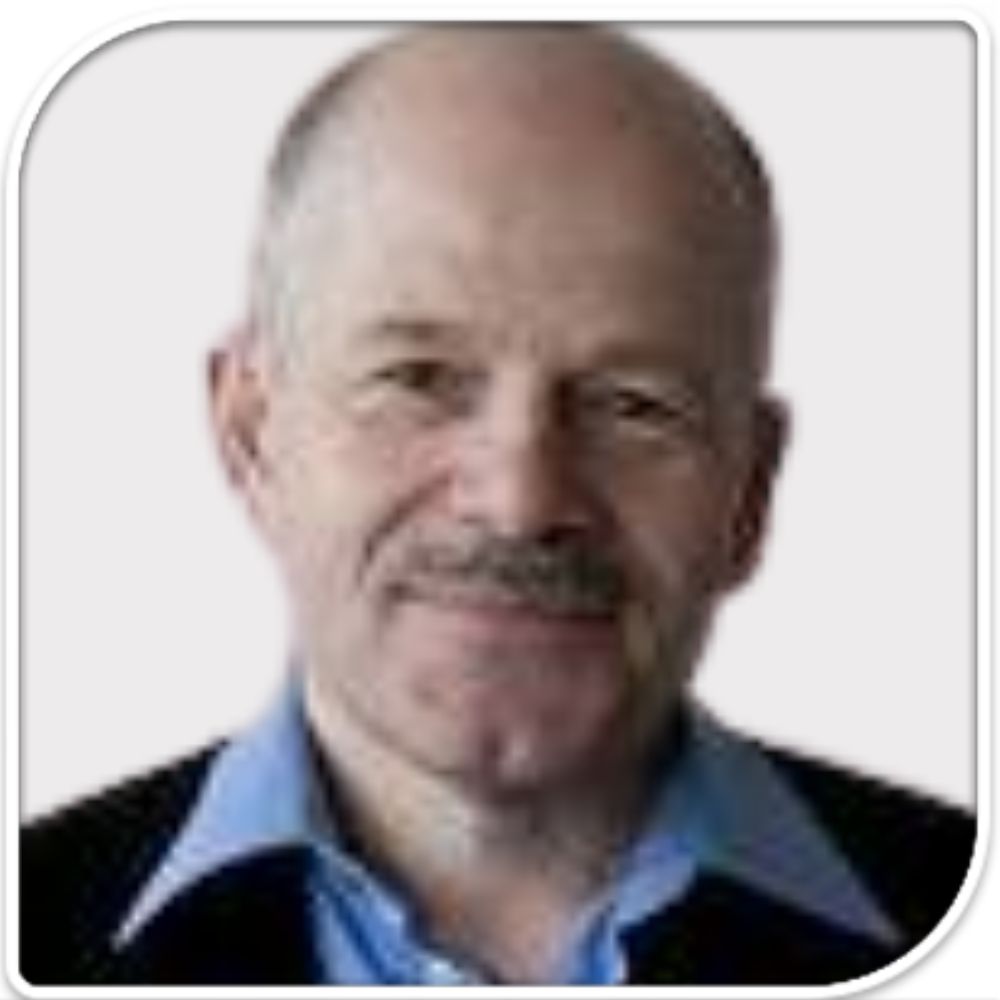 Prof. Vladimir Gogvadze, Karolinska Institutet, Sweden, and active member of the scientific committe will join Targeting Mitochondria 2023 this October and introduce the congress.
Prof. Vladimir Gogvadze, Karolinska Institutet, Sweden, and active member of the scientific committe will join Targeting Mitochondria 2023 this October and introduce the congress.
Prof. Gogvadze will dedicate his talk to Prof. Vladimir Skulachev, former member of the scientific committee of WMS, to recognize his impact in the Mitochondria World: "Vladimir Skulachev's Strategic Impact on Mitochondrial Medicine: A Tribute to his Vision, Discoveries, and Legacy".
Read more about Professor Skulachev's impact.
Targeting Mitochondria 2023 Congress
October 11-13, 2023 - Berlin, Germany
Metabolic effects of Cimicfuga racemosa extract on mitochondria and implications for the resistance against oxidative cell death and longevity
 Prof. Carsten Culmsee, active member of the scientific committe and from the University of Marburg, Germany, will join Targeting Mitochondria 2023 this October. He will have a talk entitled "Metabolic effects of Cimicfuga racemosa extract on mitochondria and implications for the resistance against oxidative cell death and longevity".
Prof. Carsten Culmsee, active member of the scientific committe and from the University of Marburg, Germany, will join Targeting Mitochondria 2023 this October. He will have a talk entitled "Metabolic effects of Cimicfuga racemosa extract on mitochondria and implications for the resistance against oxidative cell death and longevity".
Cimicifuga racemosa extract (CRE) is a well-established herbal medication to treat menopausal symptoms such as hot flashes and weight gain. In contrast to estrogen replacement therapy or phytoestrogens, however, CRE does not act through stimulation of estrogen receptors but through metabolic mechanisms. Prof. Culmsee and his team's findings suggest that CRE Ze 450 rather exerts direct effects on mitochondrial energy turnover through interference with components of the mitochondrial electron transport chain (ETC).
Prof. Culmsee will provide a comprehensive insight into the signalling effects of the extract on the mitochondrial proteome and metabolome, highlighting the role of CREe for the resilience against age-related processes engaging impaired mitochondria and loss of antioxidative capacities.
Targeting Mitochondria 2023 Congress
October 11-13, 2023 - Berlin, Germany
WASF3 disrupts mitochondrial respiration and may mediate exercise intolerance in Myalgic Encephalomyelitis/Chronic Fatigue Syndrome (ME/CFS)
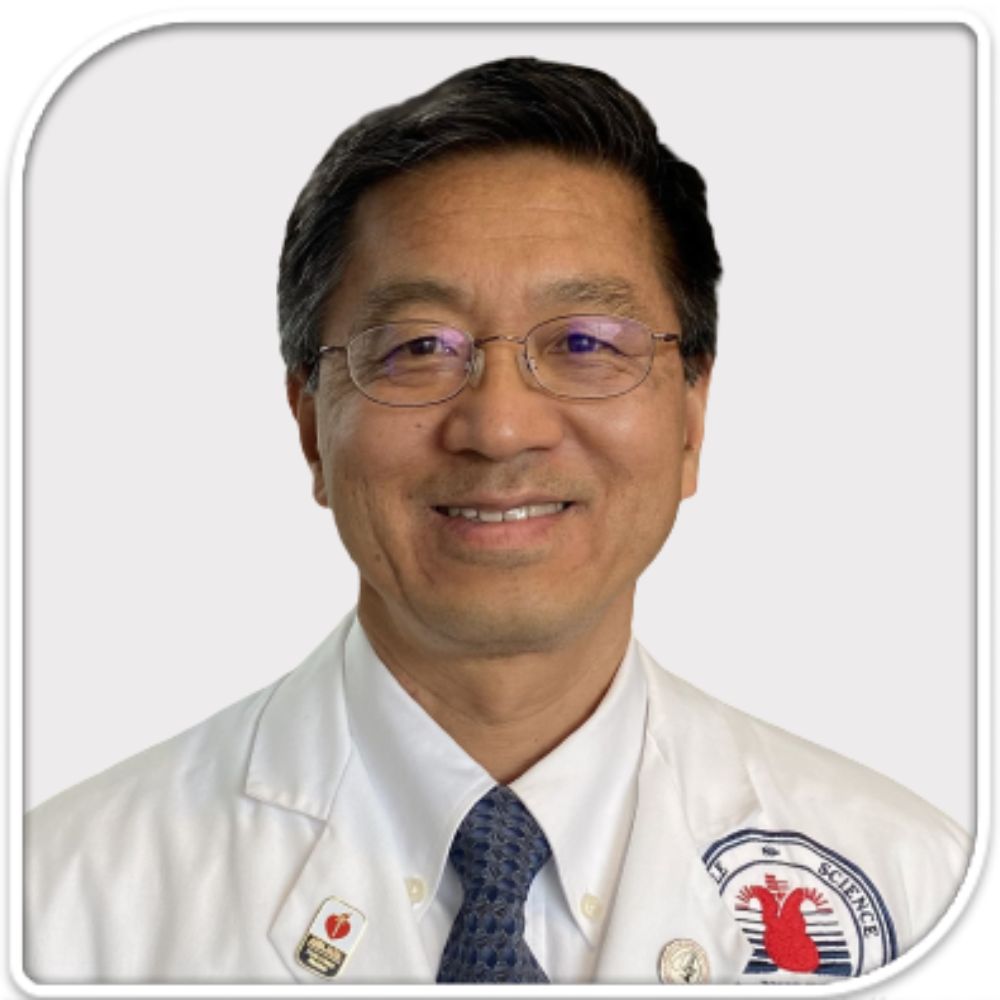 Dr. Paul Hwang, Senior Investigator at the National Heart, Lung and Blood Institute, USA will present his latest finding targeting mitochondria in chronic fatigue symptoms during Targeting Mitochondria 2023 this October.
Dr. Paul Hwang, Senior Investigator at the National Heart, Lung and Blood Institute, USA will present his latest finding targeting mitochondria in chronic fatigue symptoms during Targeting Mitochondria 2023 this October.
Dr. Hwang's talk will be titled: "WASF3 disrupts mitochondrial respiration and may mediate exercise intolerance in ME/CFS". He will share his latest findings reported in the Proceedings of the National Academy of Sciences. Read more about this outstanding publication.
Myalgic encephalomyelitis/chronic fatigue syndrome (ME/CFS) is a disorder characterized by various disabling symptoms including exercise intolerance. Dr. Hwang and his team report that overexpression of Wiskott-Aldrich Syndrome Protein Family Member 3 (WASF3), here identified in a 38-y-old woman suffering from long-standing fatigue and exercise intolerance, can disrupt mitochondrial respiratory supercomplex formation.
Increased expression of WASF3 in transgenic mice decreased their treadmill running capacity and specific respiratory complexes. Expanding on our findings in a single patient, skeletal muscle biopsy samples obtained from a cohort of patients with ME/CFS showed increased WASF3 protein levels associated with aberrant ER stress activation. Pharmacologic inhibition of ER stress decreased WASF3 and improved mitochondrial function in the cells of the patient with chronic fatigue, suggesting a therapeutic strategy for ME/CFS treatment.
About Dr. Hwang
Dr. Paul Hwang earned B.A. degrees in biochemistry and chemistry from the University of Kansas in 1985, after which he spent a year at the Swiss Federal Institute of Technology and University of Zurich as a Fulbright Scholar. He graduated from the Johns Hopkins University School of Medicine with an M.D. and Ph.D in 1993. He did his internship and residency in internal medicine at the UCSF School of Medicine in San Francisco, followed by a clinical fellowship in cardiology and postdoctoral research in molecular oncology at the Johns Hopkins University School of Medicine. Upon completion of his training in 2001, Dr. Hwang joined the NHLBI-NIH as an investigator and was tenured in 2011. He has been elected as member of the American Society for Clinical Investigation and fellow of the American College of Cardiology.
Join Targeting Mitochondria 2023 to learn more about Dr. Hwang's research.
Targeting Mitochondria 2023 Congress
October 11-13, 2023 - Berlin, Germany
Mitochondrial Monitoring in Perioperative and Critical Care: Recent Advances & Perspectives
 Dr. Egbert Mik, Erasmus MC, The Netherlands, and ative member or WMS scientific committee, will be joining Targeting Mitochondria 2023. Dr. Mik will give an update on "Mitochondrial Monitoring in Perioperative and Critical Care"
Dr. Egbert Mik, Erasmus MC, The Netherlands, and ative member or WMS scientific committee, will be joining Targeting Mitochondria 2023. Dr. Mik will give an update on "Mitochondrial Monitoring in Perioperative and Critical Care"
In order not to miss this outstanding talk, so join Targeting Mitochondria 2023 to learn more about Dr. Mik's interesting findings.
Targeting Mitochondria 2023 Congress
October 11-13, 2023 - Berlin, Germany
Brain Organoids to Model Mitochondrial Neurological Diseases
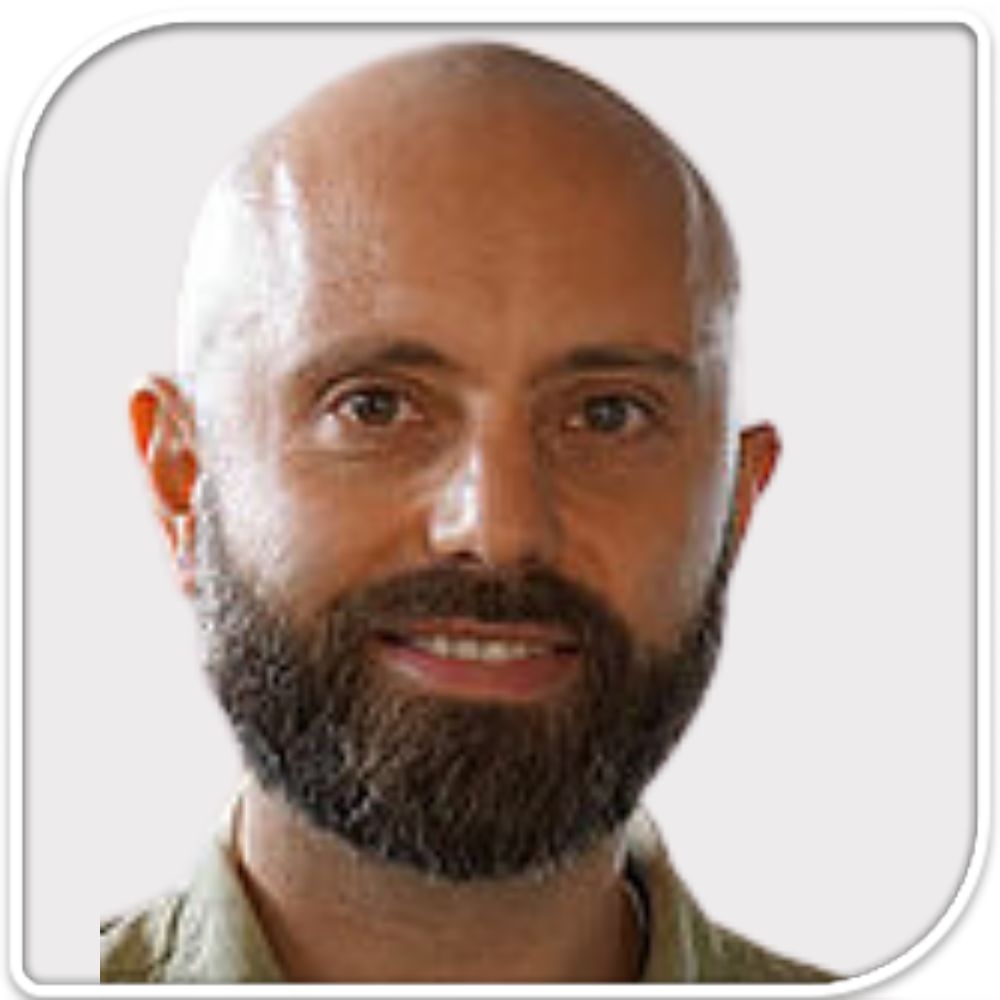 Prof. Alessandro Prigione, ative member or WMS scientific committee, Heinrich Heine University (HHU) Düsseldorf, Germany, will join Targeting Mitochondria 2023 to present a talk entitled: "Brain Organoids to Model Mitochondrial Neurological Diseases".
Prof. Alessandro Prigione, ative member or WMS scientific committee, Heinrich Heine University (HHU) Düsseldorf, Germany, will join Targeting Mitochondria 2023 to present a talk entitled: "Brain Organoids to Model Mitochondrial Neurological Diseases".
Join Targeting Mitochondria 2023 to learn more about Prof. Prigione's interesting findings. You can submit a related abstract here.
Targeting Mitochondria 2023 Congress
October 11-13, 2023 - Berlin, Germany
Cholesterol: Why Have Mitochondrial Biologists Ignored this Critical Mitochondrial Component for Over a Century?
 Prof. Ian Holt, active member of the scientific committee, Instituto de Investigación Sanitaria Biodonostia, Spain, will join Targeting Mitochondria 2023 to present a talk titled: "Cholesterol: Why Have Mitochondrial Biologists Ignored this Critical Mitochondrial Component for Over a Century?".
Prof. Ian Holt, active member of the scientific committee, Instituto de Investigación Sanitaria Biodonostia, Spain, will join Targeting Mitochondria 2023 to present a talk titled: "Cholesterol: Why Have Mitochondrial Biologists Ignored this Critical Mitochondrial Component for Over a Century?".
As Michael Brown noted in his 1985 Nobel Lecture: Cholesterol is the most highly decorated small molecule in biology. However, cholesterol’s contribution to mitochondrial membranes has attracted little interest, as they are ‘cholesterol-poor organelles’ with 0.5-3% of the content found in the plasma membrane. And although high cholesterol has been linked to mitochondrial dysfunction, this merely implied that mitochondria have an aversion to cholesterol.
The first forays into this field came with the unexpected discovery that pathological mutant forms of the trans-mitochondrial membrane protein, ATAD3, completely reconfigure cellular cholesterol metabolism.
During Targeting Mitochondria 2023, Prof. Holt will report the central role of cholesterol in the ATAD3 disease cascade, and crucially show that the molecular phenotypes stem from the mitochondrion’s absolute requirement for cholesterol.
Join Targeting Mitochondria 2023 to learn more about Prof. Holt's interesting findings.
Targeting Mitochondria 2023 Congress
October 11-13, 2023 - Berlin, Germany
Mitochondrial Presequence Protein Translocation
 Prof. Nils Wiedemann, Universität Freiburg, Germany, will join Targeting Mitochondria 2023 to present a talk entitled: "Mitochondrial Presequence Protein Translocation".
Prof. Nils Wiedemann, Universität Freiburg, Germany, will join Targeting Mitochondria 2023 to present a talk entitled: "Mitochondrial Presequence Protein Translocation".
Virtually all of the ~1,000 different mitochondrial proteins are synthesised in the cytosol and must be imported into the organelle. Most of these mitochondrial precursor proteins contain an amino-terminal presequence, which forms a positively charged amphiphilic alpha-helix. The TIM23 translocase sorts these presequence proteins into the inner membrane or matrix. Prof. Wiedemann and colleagues mapped the interaction of the essential subunit Tim17 with presequence containing precursor proteins.Tim17 contains conserved negative charged residues close to the intermembrane space side of the inner membrane, which are essential for presequence protein translocation along a distinct transmembrane cavity of the Tim17-bilayer interface.
About Prof. Wiedemann,
Professor (apl.) of Biochemistry and Molecular Biology, University of Freiburg, Germany
Prof. Wiedmann won the Young Investigator Award, German Society for Biochemistry and Molecular Biology (GBM) Frankfurt in the year 2007.
Join Targeting Mitochondria 2023 to learn more about Prof. Wiedemann's interesting findings. Read more about Prof. Wiedmann's latest research.
Targeting Mitochondria 2023 Congress
October 11-13, 2023 - Berlin, Germany
Dr. Naig Gueguen announces the Agenda of the Upcoming Workshop on Mitochondrial Function and Dysfunction Evaluation
In association with the World Mitochondria Society (WMS), we are thrilled to announce the hosting of a specialized workshop focused on the Evaluation of Mitochondria Function, Dysfunction, and Activities. The workshop will take place on October 11, 2023, one day prior to the start of the Targeting Mitochondria 2023 Congress.
Purpose of the Workshop
This workshop will delve into the significant role mitochondria play in various medical fields, including cardiology, neurology, nephrology, and infectious diseases, among others. Given the centrality of mitochondria to human metabolism, their assessment is vital for the discovery of treatments for diseases associated with mitochondrial dysfunction.
Workshop Key Objectives
- To introduce and review technological tools used for mitochondrial study and analysis.
- To provide an understanding of mitochondrial markers evaluated in the context of medical research.
- To present various methodologies for analyzing mitochondria and their functions, including bioenergetics, biogenesis, dynamics, and mitophagy.
- To discuss biochemical diagnostic strategies for mitochondrial diseases.
- To discuss practical cases to solidify understanding.
Who Can Attend?
The workshop welcomes everyone looking to enhance their understanding and proficiency in the field of mitochondria, metabolism, and bioenergetics, their vital roles within the human body, as well as the latest innovations in therapeutic tools and analyses.
About Dr. Naig Gueguen:
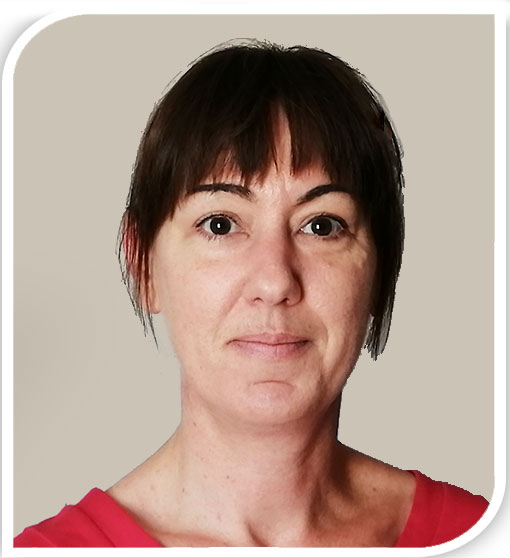 Dr. Gueguen is an expert from the Mitovasc Institute, Mitolab team, and member of INSERM 1083, CNRS 6215, Centre Hospitalier Universitaire d’Angers. She will eagerly anticipate this enriching workshop. The Mitovasc Institute's Mitolab Team is renowned worldwide for its work in mitochondrial research. The team focuses on studying mitochondrial function and dysfunction, with the aim of developing effective treatments for various diseases.
Dr. Gueguen is an expert from the Mitovasc Institute, Mitolab team, and member of INSERM 1083, CNRS 6215, Centre Hospitalier Universitaire d’Angers. She will eagerly anticipate this enriching workshop. The Mitovasc Institute's Mitolab Team is renowned worldwide for its work in mitochondrial research. The team focuses on studying mitochondrial function and dysfunction, with the aim of developing effective treatments for various diseases.
Contact WMS: This email address is being protected from spambots. You need JavaScript enabled to view it.
